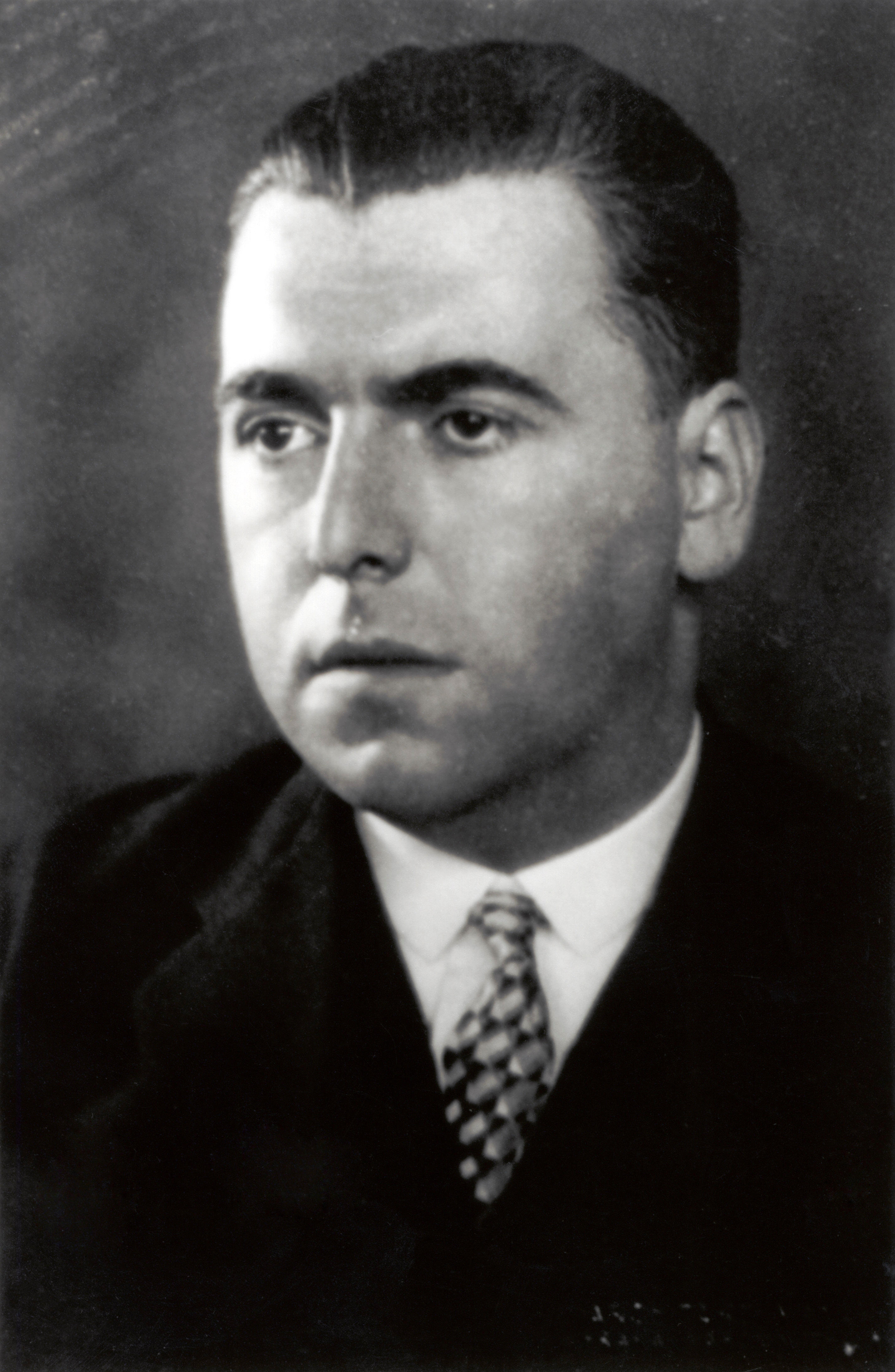- Portrait
- History

Erwin Schulhoff, son of a German-Jewish merchant family in Prague, was musically gifted at an early age. No less a figure than Antonín Dvořák is said to have discovered his talent. He went on his first concert tour at the age of just 16, completed his studies at the conservatory in Cologne in 1913 and received the prestigious Felix Mendelssohn Prize in Berlin in the same year. A brilliant musical career seemed to be in store for him – then the First World War broke out, an event which Schulhoff experienced as a “veritable deluge” that threatened to destroy “all the acquired culture of European mankind”. After “4 years of servitude in the field”, he noted in his diary at the end of 1918 that he would now go his own “defiant way” into a new artistic “future country”.
A desire for musical revolution
At the beginning of 1919, Schulhoff moved to Dresden, where he organised the “Progress Concerts” series, featuring works by Schoenberg, Berg, Schnabel and other representatives of contemporary Modernism in order to introduce the public, as he announced, to the “musical revolution”. As a composer, however, he didn’t follow such models himself. Dadaism, an art movement founded in 1916 at the Cabaret Voltaire in Zurich, became his source of inspiration. “What we call Dada,” explained co-founder Hugo Ball, “is a jester’s game; a playing with the sordid remnants; an execution of posturing morality and abundance. The Dadaist loves the extraordinary, even the absurd. Every kind of mask is therefore welcome to him. Any game of hide-and-seek that has an inherent duplicitous power.”
Curious, experimental, irreverent
Schulhoff was immediately attracted to this art movement, and he wrote his first Dadaist compositions, which illustrated how Western musical traditions were radically disregarded. According to Schulhoff’s credo at the time, music should “first and foremost produce physical well-being, even ecstasy, through rhythm; it is never philosophy”. His Symphonia germanica, a sarcastic parody of the German national anthem, takes aim, for example, at all those men who, despite the defeat of the war in 1918, still dreamed of a heroic death.
In the autumn of 1920, Schulhoff took on a piano professorship at a private conservatory in Saarbrücken. Far away from the cultural capitals, however, he held fast to his enthusiasm for Dada. And he still saw himself as a Dadaist when he finally moved to Berlin in early 1922, newly married, in order to reconnect with contemporary art and music. But in the meantime, the Dada group there had more or less disbanded. In 1924, he returned to Prague, where he worked as a pianist and composer.
Committed communist
Hardly any orther composer of his generation was as curious, experimental or irreverent as he was. It wasn’t only Dadaism that inspired him: he knew how to imaginatively combine the rhythms of the newly emerging jazz and the swing of the fashionable dances of the time with the atonal harmonies of avant-garde styles. Later, his aesthetics changed: as a committed communist who even set the Communist Party Manifesto to music, he aligned himself with the requirements of socialist realism and his style became more catchy and accessible.
In 1941, Schulhoff was granted Soviet citizenship and wanted to emigrate to the Soviet Union with his family. This was his undoing: as a Jew, communist and creator of “degenerate music”, he was no longer allowed to perform in Germany after the National Socialists seized power in 1933 or in his homeland after the occupation of Czechoslovakia in 1939. As a Soviet citizen, he was then considered an “enemy alien” and was sent to the Bavarian internment camp Wülzburg, where he died of tuberculosis in 1942 at the age of 48.
Biographical data of the composer:
1894: Born in Prague
1904: Admission to the piano class of the Prague conservatory
1906: Studies in Vienna
1908: Studies in Leipzig, including with Max Reger
1911: Studies in Cologne
1913: Wüllner Prize
1914-18: Military service in the First World War
1918: Mendelsson prize
1919: Move to Dresden, became acquainted with the painter George Grosz and Otto Dix.
1920: Piano teacher in Saarbrücken
1922: Move to Berlin
1924: Return to Prague; music critic for the Prager Abendblatt
1924: Premiere of the string sextet at the Kammermusikfest Donaueschingen
1927-29: Composition of the opera Flammen to a libretto by Max Brod
1931: Member of the communist “Lefá fronta” (Left Front)
1932: Oratorio Das Manifest after Marx/Engels
1935-39: Radio pianist in Ostrava, Moravia
1941: Soviet citizen, internment in Wülzburg
1942: Death in Wülzburg